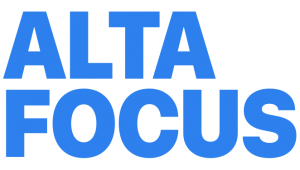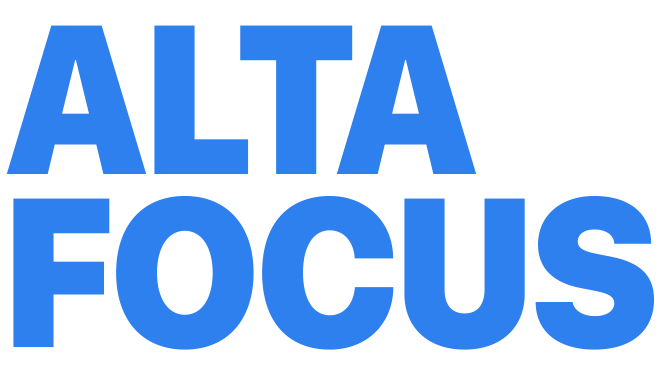Today we interviewed Luca Salgarelli, the founder and CEO of the Italian startup Inxpect. Founded in 2016, Inxpect is working on innovative 3D safety radar technology for robotics and industrial automation. So far, the startup was already able to raise about €12 milllion in funding and continues to be on a rapid growth journey.
Inxpect was also just selected as one of the 20 finalists for EIT Digital Challenge 2020, Europe’s flagship competition for digital tech scaleups. In case you’d like to join the final event to see Inxpect’s pitch (and 19 other pitches), and to connect with those startups directly, please feel free to apply here.
When/How did you come up with the idea to start a company that creates radar-based smart sensors for the industrial automation and robotics markets?
Luca Salgarelli: I got the idea in early 2014 from… a magpie.
That bird would come to the outside of my office’s window every morning at dawn, and that would trigger the infra-red motion detectors into alarm. Every morning: so annoying!
I thought that in the 21st century there must be a better way to sense people, animals and other objects. As it turned out, radar was the answer.
Seeing the first demo of the great-great-grand-father of our current systems, one of our shareholders asked me if I never thought of applying the same technology to give new types of eyes to robots and machines.
At that point, Inxpect was born.
What were the biggest hurdles/challenges within the first 1-2 years after founding Inxpect, and how did you overcome them?
Luca Salgarelli: Finding the right people, especially given the technical challenges that we needed to overcome to engineer smart radars.
Even if radar is an old technology, it lived in very confined market segments, such as military and aerospace, for much of its life. Only a few years ago it started to be applied to other domains such as automotive.
Because of this, creating a smart radar still requires a very diverse set of technical skills, from analog RF engineering to digital electronics, signal processing, FW, SW, up to and including mechanical engineering.
Even more importantly, all of these people need to work side by side, on a daily basis. Finding the right team has been THE challenge for the first couple of years.
But two ingredients allowed Inxpect to overcome this: persistence, and… luck!
How does Inxpect differentiate itself and its products from competing smart sensors companies?
Luca Salgarelli: We are the only company that has succeeded so far in using radars for industrial safety applications.
Thanks to this unique application of an old technology, our products offer features that differentiate them from competing optical or pressure sensitive sensors: native 3D sensing, robustness to environmental factors and low cost.
So, the key differentiators of Inxpect are the technology that we employ, and the skills of our team that is capable of transforming the potential of radar into a unique value proposition for the robotics and industrial automation markets.
How is your experience with Brescia as a city to start a tech company? Did you ever consider relocating the company to a bigger Italian startup hub like Milan, or maybe even to move it to a global startup hub like London or the Silicon Valley?
Luca Salgarelli: Brescia is tiny compared to much bigger metropolitan areas such as Milan, London or others.
However, it does have a vibrant academic environment, especially in engineering, which is excellent as a provider of technical talent.
At the same time, Brescia is at the center of one of the biggest three manufacturing clusters in Europe.
For a HW, product-oriented company such as Inxpect that has decided to rely on third parties to manufacture its products, Brescia is as close to manufacturing heaven you can be: hundreds of excellent quality, high-tech manufacturing partners are within 1hr driving from our offices.
Nevertheless, we are also expanding internationally: as of today, we have an R&D subsidiary in Israel, and we have just opened the first sales subsidiary in Spain. Others will follow.
So, while the hearth of the company will remain in Brescia, soon a lot of our people will be spread globally.
Where do you see Inxpect in 3-4 years from now? What are the next milestones?
Luca Salgarelli: We want to reinvent the way people interact with machinery: we need to improve productivity, while at the same time safeguarding the health and well being of operators.
Did you know that more than half a million people in the US manufacturing segment alone have on the job, preventable injuries every year? I was stunned to learn this.
Robotics and industrial automation need to step up: we need to find a way to dramatically improving productivity, while at the same time increase, not decrease, the safety of the operators. This is our end goal.
We went public with our vision with a video, which is also a statement of where we want to go in the long run:
We are on a path to achieve this goal with our smart radars, and we believe that Inxpect has the potential to become the leader in smart radar sensing for robotics in the next 4 to 5 years, redefining how people interact with machinery.
We took the first step with our first generation products in 2018, and we are now on the verge of announcing our second generation smart radars. They will be the stepping stone towards our goal.
In the next 2 to 3 years, the major milestones are increasing our market impact in terms of sales and value offered to our customers, globally, and keep investing in R&D to overcome the technological challenges that are standing between our current product and our vision.
Realising these milestones will, once more, depend on our ability to attract the best talents both for technical and for customer facing positions.
So far you raised about €12 million in venture capital. Are you considering to raise additional funds in the near future, and if so, in which areas of your business would you invest those funds?
Luca Salgarelli: We are in the middle of negotiating our Series B funding, so yes, we are raising more capital.
We need to deploy a good chunk on marketing and sales, so that the value of our first and second generation products can be offered and become useful to as many market segments and geographical regions as possible.
At the same time, we will also keep heavily investing in creating the best possible radar technology for robotics.
Was your business impacted by the ongoing Covid-19 crisis? If so, how? And how do you deal with it?
Luca Salgarelli: Being spread out in several offices, we were pretty well used to working and interacting with each other remotely from the moment we started the company.
So, in terms of our day to day engineering activities, the lockdowns and limitations due to the Covid-19 crises had little if any impact.
Looking at things from the sales perspective, unfortunately the story is different.
We are a new company with a new technology in a relatively conservative market such as the industrial automation one.
Therefore, every day we need to go and see new customers to have an impact, offer them trials, run pilot programs, etc. These tasks can hardly be done without visiting prospects and customers in person.
All of these activities almost ground to a halt for one quarter this year, and even after the stricter lockdowns ended, have been pretty limited thus far.
That has had a serious impact on our bottom line for 2020: our revenues grew significantly over 2019, but stopped quite short of our forecasts.
On to the more positive notes: none of the team at Inxpect or their families have been seriously affected, in terms of health, by the pandemic so far.
Furthermore, during the lockdowns we instituted a “Stronger together” weekly hour where everyone contributed with local stories, personal experiences, shared their passions, with a light touch.
Originally published on Eu-startups.com






